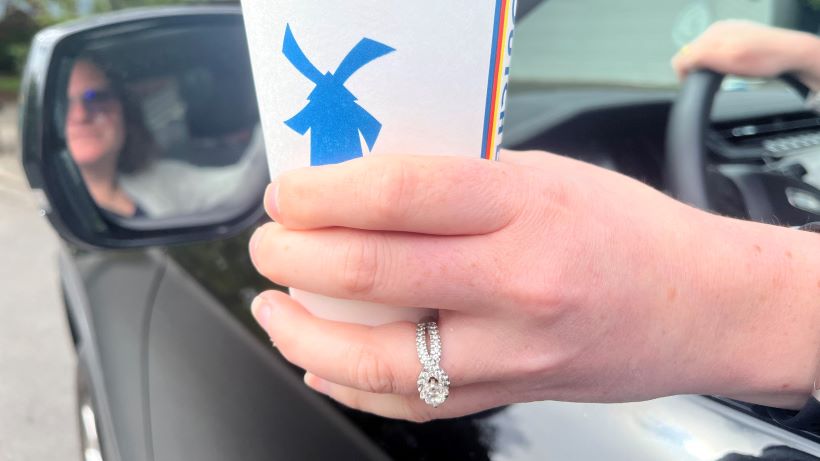Have you ever been in the middle of a “pay it forward” chain reaction? This occasionally happens in line at the local coffee drive-through, when the car ahead of you pays for your coffee, and then you pay for the car behind you. On Sunday mornings, when there’s no ALIYAH and I have no meetings, our family occasionally goes to our local coffee kiosk to grab coffee for the adults and hot cocoa for the kids. When the weather’s nice, we even walk. These mornings have been made extra special a few times when the car in front of us has paid for our order. The kids get super excited when this happens, and of course we then pay for the car behind us, and the chain of kindness usually continues on. There’s something contagious about a simple act that inspires others to help other people.

When did you last experience a chain of kindness like this? It’s not limited to coffee shops. Whether it’s people taking turns holding the door open for the next person to walk through, or a Hebrew school class adding tzedakah to a class fund to donate, there are plenty of examples of chains of kindness. It might surprise you to learn that this action of inspiring kindness in others actually comes from this week’s Torah portion.
This week we read Parshat Emor, and we once again find ourselves deep into the commandments surrounding Jewish practice. Parshat Emor focuses on the rules and regulations for the priests, along with the obligations of the Israelites. It covers the observance of certain holidays, including mentions about the holiness of Shabbat, other holidays we are to celebrate throughout the year, and the ways in which we are to treat one another and even animals. The majority of these rituals are meant to be done in public, with the entire community a part of them.
In the midst of these commandments, God offers a gentle reminder that our actions are often noticed by those around us. At the end of chapter 22, we’re warned against profaning God’s name in the “midst of the Israelite people.” Why this extra warning about how we behave in public?
Multiple commentaries reflect that public shaming, public abuse of power, or even public misrepresentation of tradition can be fairly damning and misunderstood by the masses. Nowhere does the Torah forbid us from being upset with, disagreeing with, or even arguing with God. Instead, we’re cautioned against doing so in public because of the repercussions to the individual, as well as the people they might be representing. This, we understand, could lead to the opposite kind of chain reaction: one of harmful rhetoric or misjudgments.
“A Jew is asked to take a leap of action rather than a leap of faith.” Rabbi Abraham Joshua Heschel’s words remind us that it’s our actions that make a difference and can influence others more than our faith. For better or worse, how we act is the clearest representation of ourselves, and who knows how far your chain of kindness will go?



